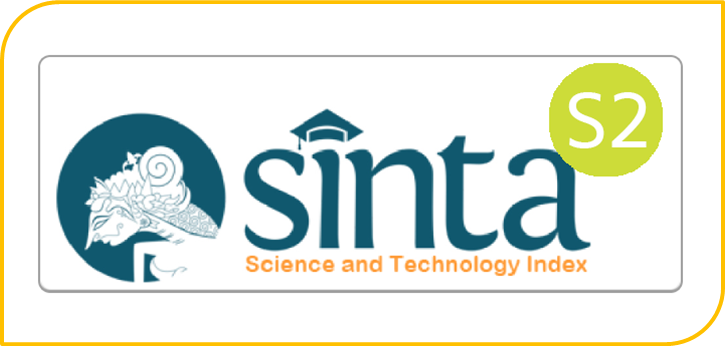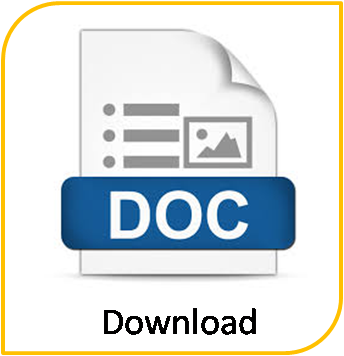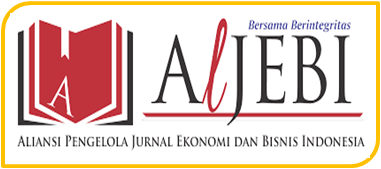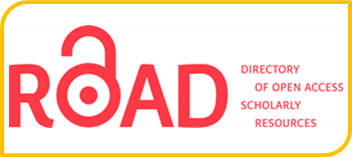SHARIA GOVERNANCE IN ISLAMIC FINANCIAL INSTITUTIONS: A COMPARATIVE REVIEW OF MALAYSIA AND INDONESIA
Abstract
Keywords
Full Text:
PDFReferences
Abbasi, A. S. (2020). Shariah governance framework for IBIs: A critical analysis. Islamic Banking and Finance Review, 7(1), 1–18. https://doi.org/10.32350/ibfr/2020/0700/1116
Abdullah, A. (2017). A comparison between Malaysia and Indonesia in Islamic banking industry. Pressacademia, 4(3), 276–286. https://doi.org/10.17261/pressacademia.2017.705
Ahmad, Z., Muneeza, A., & Mahomed, Z. (2023). A Comparative analysis of Shariah governance framework of Islamic Bank in Malaysia and Pakistan. Talaa: Journal of Islamic Finance, 3(1), 1–17.
Al-Suhaibani, M., & Naifar, N. (2014). Islamic corporate governance: Risk-sharing and Islamic preferred shares. Journal of Business Ethics, 124(4), 623–632. https://doi.org/10.1007/s10551-013-1897-6
Al Rahahleh, N., Ishaq Bhatti, M., & Najuna Misman, F. (2019). Developments in risk management in Islamic finance: A review. Journal of Risk and Financial Management, 12(1). https://doi.org/10.3390/jrfm12010037
Alam, M. K., Islam, F. T., & Runy, M. K. (2021). Why does Shariah governance framework important for Islamic banks?. Asian Journal of Economics and Banking, 5(2), 158–172. https://doi.org/10.1108/ajeb-02-2021-0018
Alam, M. K., Mustafa, H., Uddin, M. S., Islam, M. J., Mohua, M. J., & Hassan, M. F. (2020). Problems of Shariah governance framework and different bodies: An empirical investigation of Islamic Banks in Bangladesh. Journal of Asian Finance, Economics and Business, 7(3), 265–276. https://doi.org/10.13106/jafeb.2020.vol7.no3.265
Alam, M. K., Rahman, M. M., Runy, M. K., Adedeji, B. S., & Hassan, M. F. (2022). The influences of Shariah governance mechanisms on Islamic banks performance and Shariah compliance quality. Asian Journal of Accounting Research, 7(1), 2–16. https://doi.org/10.1108/AJAR-11-2020-0112
Ali, M. N. A., Shahimi, S., & Shafii, Z. (2018). Knowledge, skills and characteristics requirements for Shari’ah auditors. Asian Journal of Accounting and Governance, 9(May), 171–185. https://doi.org/10.17576/ajag-2018-09-15
Ali, S. N., Tariq, W., & Al-Quradaghi, B. (2020). The Edinburgh Companion to Shari’ah Governance in Islamic Finance. Edinburgh University Press. https://books.google.co.id/books?id=v9WSwgEACAAJ
Alnasser, S. A. S., & Muhammed, J. (2012). Introduction to corporate governance from Islamic perspective. In Humanomics. 28(3), 220–231. https://doi.org/10.1108/08288661211258110
Arsyianti, L. D. (2010). The role of Shariah supervisory board in Islamic financial industry (Case study: Iran, Malaysia, and Indonesia). Jurnal Ekonomi Islam Al-Infaq, 1(1), 61–79.
Aziz, H. A., & Ghadas, Z. A. A. (2022). Corporate governance framework for Shariah compliant corporation. Proceedings of the International Joint Conference on Arts and Humanities 2021 (IJCAH 2021), 618. https://doi.org/10.2991/assehr.k.211223.092
Aziz, R. A., Abdul-Rahman, A., & Markom, R. (2019). Best practices for internal Shariah governance framework: Lessons from Malaysian Islamic banks. Asian Journal of Accounting and Governance, 12(1), 1–14. https://doi.org/10.17576/ajag-2019-12-15
Shariah Governance Framework for Islamic Financial Institutions, 2 federation of Malaysia (2010). https://law.resource.org/pub/my/ibr/ms.bnm.shariah.02.2010.pdf
Bhatti, M., & Bhatti, I. (2009). Development in legal Issues of Corporate Governance in Islamic Finance. In Journal of Economic and Administrative Sciences. 25(1). 67–91.https://doi.org/10.1108/10264116200900004
Farr, B. C. (2008). Designing qualitative research. In Transformation: An International Journal of Holistic Mission Studies. (25, 2). Sage Publications. https://doi.org/10.1177/026537880802500310
Fatmawati, D., Ariffin, N. M., Abidin, N. H. Z., & Osman, A. Z. (2022). Shariah governance in Islamic banks: Practices, practitioners and praxis. Global Finance Journal, 51, 100555. https://doi.org/10.1016/j.gfj.2020.100555
Grais, W., & Pellegrini, M. (2006). Corporate governance and Shariah compliance in Institutions Offering Islamic Financial Services. World Bank Policy Research Working Paper, November, 1–46. https://doi.org/http://dx.doi.org/10.1596/1813-9450-4054
Grassa, R. (2013). Shariah supervisory system in Islamic financial institutions: New issues and challenges: A comparative analysis between Southeast Asia models and GCC models. Humanomics, 29(4), 333–348. https://doi.org/10.1108/H-01-2013-0001
Hailu, S. M., & Tekdoğan, Ö. F. (2023). Ensuring the compliance of Islamic finance applications with Shariah principles in Ethiopia: The way forward. Hitit Theology Journal, 22(1), 139–168. https://doi.org/10.14395/hid.1247875
Hasan, A., Amilin, A., & Nasaruddin, I. Y. (2022). Does intellectual capital and Islamic corporate governance affect financial performance and earning management on Sharia banking in Indonesia? AFEBI Islamic Finance and Economic Review, 6(01), 57. https://doi.org/10.47312/aifer.v6i01.399
International Monetary Fund. (2002). Islamic financial institutions and products in the global financial system: Key issues in risk management and challenges ahead. In IMF Working Papers (Vol. 02, Issue 192, p. 1). https://doi.org/10.5089/9781451859775.001
Ulfi, I. (2022). Comparison of Sharia governance model in Islamic financial institutions between the GCG and Asian countries. Jurnal Akuntansi Dan Manajemen Bisnis, 2(2), 149–157. https://doi.org/10.56127/jaman.v2i2.248
Jan, A. A., Lai, F. W., & Tahir, M. (2021). Developing an Islamic Corporate Governance framework to examine sustainability performance in Islamic Banks and Financial Institutions. Journal of Cleaner Production, 315(June), 128099. https://doi.org/10.1016/j.jclepro.2021.128099
Jan, S., & Ismail, M. (Eds.). (2023). Shariah Governance in Islamic Banking Institutions. Routledge Taylor & Francis Group.
Kachkar, O., & Yilmaz, M. K. (2023). How diverse are Shariah supervisory boards of Islamic banks? A global empirical survey. International Journal of Ethics and Systems, 39(2), 312–341. https://doi.org/10.1108/IJOES-10-2021-0195
Karimah, I. (2022). Between legal risk and sharia risk in Islamic banking: How Shariah governance address the problem. Diponegoro Law Review, 7(1), 88–105. https://doi.org/10.14710/dilrev.7.1.2022.88-105
Kasi, B. R., & Mahmood, N. (2019). Composition and working of the Sharia supervisory boards in Bahrain’s Islamic banks. Economy, 6(2), 76–81. https://doi.org/10.20448/journal.502.2019.62.76.81
Kettell, B. (2011). Case studies in Islamic banking and finance. John Wiley & Sons. https://nurulichsanaan.wordpress.com/wp-content/uploads/2015/10/introduction-to-islamic-banking-and-finance-case-studies-case-questions-answers-brian-kettell-2011.pdf)
Khairunnisak, Z., & Purba, H. (2023). Good Corporate Governance in Sharia Banking. Indonesian Journal of Business Analytics, 3(3), 803–814. https://doi.org/10.55927/ijba.v3i3.4813
Khalid, A. A. (2020). Role of audit and governance committee for internal Shariah audit effectiveness in Islamic banks. Asian Journal of Accounting Research, 5(1), 81–89. https://doi.org/10.1108/AJAR-10-2019-0075
Kiranawati, Y. C., Aziza, S. M., Nasim, A., & Ningsih, C. (2023). Islamic Banking governance in Maqashid Sharia perspectives: A systematic literature review. Share: Jurnal Ekonomi Dan Keuangan Islam, 12(1), 59. https://doi.org/10.22373/share.v12i1.15446
Laldin, M. A., & Furqani, H. (2018). Islamic Financial Services Act (IFSA) 2013 and the Sharīʿah-compliance requirement of the Islamic finance industry in Malaysia. ISRA International Journal of Islamic Finance, 10(1), 94–101. https://doi.org/10.1108/IJIF-12-2017-0052
Lorenzetti, L., Domiciano, T. D., & Geraldo, A. P. (2020). Use of The QDA Miner Lite Software Program in research with the discursive textual analysis. Revista Pesquisa Qualitativa, 8(19), 971–990. https://doi.org/10.33361/rpq.2020.v.8.n.19.367
Masruki, R., Hanefah, M. M., & Dhar, B. K. (2020). Shariah governance practices of Malaysian Islamic banks in the light of Shariah compliance. Asian Journal of Accounting and Governance, 13(April). https://doi.org/10.17576/ajag-2020-13-08
Meutia, I., & Adam, M. (2021). A New Sharia Governance Framework For Islamic Banks in Indonesia. Journal of Southwest Jiaotong University, 56(2). 198-210. http://jsju.org/index.php/journal/article/view/843
Mihajat, M. I. S. (2019). Shari’ah governance framework in Islamic banking and financial institutions in Indonesia: A proposed structure. In Research in Corporate and Shari’ah Governance in the Muslim World: Theory and Practice (pp. 239–248). https://doi.org/10.1201/9781351241892-75
Mohamad, S., Sori, Z. M., & Eskandar, M. (2019). Application of Shariah governance framework in Islamic financial institutions. Contemporary Issues in Financial Reporting of Islamic Financial Institutions, 151. https://books.google.com/books?hl=en&lr=&id=KfkLEAAAQBAJ&oi=fnd&pg=PT123&dq=shariah+governance+framework&ots=cbqlGsThaG&sig=zlvqlsjNDa9PMNrSoNdx82xVUqo
Moqbel, T., & Ahmed, H. (2020). Flexibility and Sharī’ah compliance of islamic financial contracts: An evaluative framework. Arab Law Quarterly, 35(12), 92–115. https://doi.org/10.1163/15730255-BJA10052
Morrison, S. (2015). Oman’s Islamic banking regulatory framework: The corporate governance of Shari’a compliance in a new jurisdiction. Arab Law Quarterly, 29(2), 101–137. https://doi.org/10.1163/15730255-12341297
Patton, M. Q. (2014). Qualitative research & evaluation methods (4th ed.). Sage Publications.
Rahajeng, D. K. (2013). Sharia governance: Sharia supervisory board model of Islamic banking and finance in Indonesia. SSRN Electronic Journal, 1. https://doi.org/10.2139/ssrn.2366722
Rethel, L. (2018). Economic governance beyond state and market: Islamic capital markets in Southeast Asia. Journal of Contemporary Asia, 48(2), 301–321. https://doi.org/10.1080/00472336.2017.1404119
Ridwan, R., & Mayapada, A. G. (2022). Does Sharia governance influence corporate social responsibility disclosure in Indonesia Islamic banks? Journal of Sustainable Finance and Investment, 12(2), 299–318. https://doi.org/10.1080/20430795.2020.1749819
Saad, S. N. H. (2020). Developing a shariah governance framework (SGF) for halal logistics industry: a comparative study of the SGF in Islamic finance industry. ir.uitm.edu.my. https://ir.uitm.edu.my/id/eprint/60038/1/60038.pdf
SAMA. (2020). Shariah governance framework for local banks operating in Saudi Arabia. Available at SSRN 4262677, February, 1–16. https://www.sama.gov.sa/en-US/Laws/pages/bankingrulesandregulations.aspx
Shafii, Z., Ali, N. A. M., & Kasim, N. (2014). Shariah audit in Islamic banks: An Insight to the future Shariah auditor labour market in Malaysia. Procedia - Social and Behavioral Sciences, 145, 158–172. https://doi.org/10.1016/j.sbspro.2014.06.023
Shah, A. Q. A. (2019). Exploring the best industry practice of shariah review function under shariah governance framework 2010. ir.uitm.edu.my. https://ir.uitm.edu.my/id/eprint/31244/
Sori, M. Z., Mohamad, S., & Shah, M. E. (2015). Shariah committee independence: An insider’s view. SSRN Electronic Journal, October 2017. https://doi.org/10.2139/ssrn.2576539
Takaloo, A., Abdollahipour, M. S., & ... (2022). Shariah compliance framework in compliance with corporate governance principles in Malaysia’s Banking System. Quarterly Studies in …. https://jifb.ibi.ac.ir/article_163059.html?lang=en
Tarihoran, A. H., Irfan, I., & Astuty, W. (2021). Effect of Sharia compliance, islamic corporate governance, Islamic social reporting on financial performance at islamic commercial banks in Indonesia. Budapest International Research …, 9166–9173. http://bircu-journal.com/index.php/birci/article/view/2917
Uyob, S., Md Zin, A. S., Ramli, J., Othman, J., Ghani, N. A. A., & Salleh, K. (2022). The effect of Shariah committee composition on Malaysian Islamic banks’ audit report lag. International Journal of Applied Economics, Finance and Accounting, 14(1), 67–76. https://doi.org/10.33094/ijaefa.v14i1.652
Wijayanti, R., & Setiawan, D. (2023). The role of the board of directors and the Sharia supervisory board on sustainability reports. Journal of Open Innovation: Technology, Market, and Complexity, 9(3), 100083. https://doi.org/10.1016/j.joitmc.2023.100083
Yadiati, W., Prasojo, P., Listyorini, I., Rofiqah, I., & Putra, R. N. A. (2022). Human capital, quality of Sharia supervisory board and Maqasid Shariah based performance: Cross country evidence. Jurnal Dinamika Akuntansi Dan Bisnis, 9(2), 261–280. https://doi.org/10.24815/jdab.v9i2.26740
Zaini, F., Bin Shuib, D. M. S., & bin Ahmad, D. M. (2019). The prospect of Sharia banking in Indonesia (Opportunities, challenges and solutions). International Journal of Business Management and Economic Review, 02(04), 01–14. https://doi.org/10.35409/ijbmer.2019.2401
Zaini, F., & Bin Shuib, M. S. (2021). Fatwa on Sharia products and its role in the development of Islamic finance industry. Islamadina : Jurnal Pemikiran Islam, 22(2), 189. https://doi.org/10.30595/islamadina.v22i2.11859
DOI: https://doi.org/10.18860/ed.v12i1.25135
Refbacks
- There are currently no refbacks.
Editorial Office:
Megawati Soekarnoputri Building
Faculty of Economics
E-mail: eldinar@uin-malang.ac.id
Universitas Islam Negeri Maulana Malik Ibrahim Malang
E-ISSN 2622-0083

El Dinar under a CC BY SA 4.0 International License.
Member of:
Indexed By:

















